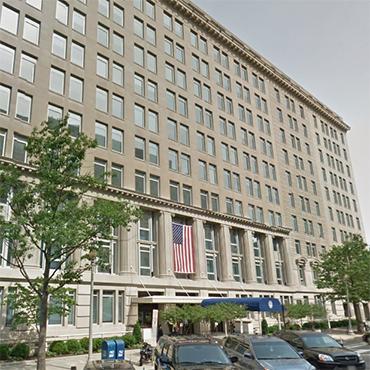VA's most important 2017 decision

A senior VA official told FCW that the decision, expected in July, to retain or move off of the homegrown Vista health record system is the most important move the agency will make this year.

The Department of Veterans Affairs has set a July 1 deadline for its decision on whether to replace its homegrown Vista electronic health record system with a commercial provider, and is consulting internally and externally about the best course of action.
At his Senate confirmation hearing, VA Secretary David Shulkin committed to the July 1 deadline for a decision on Vista.
At the GITEC conference April 3, Acting Assistant Secretary for Information and Technology and Acting CIO Rob Thomas confirmed the decision is "on track" be made by then, and said VA has contracted with the consultancy Grant Thornton to to help inform the department's decision.
"They are developing a detailed and elaborate business case that's looking at four different courses of action," he said. "One of those could be divesting Vista to a commercial provider, so it's a software-as-a-service."
The open-source Vista system was developed from scratch by internal users at VA in the 1980s, using the Massachusetts General Hospital Utility Multi-Programming System, a durable 50-year-old computer language better known as MUMPS.
Thomas also said that commercial-off-the-shelf was an option, and specifically mentioned Cerner, the commercial provider for the Department of Defense's MHS Genesis health records system.
He added that the consulting process needs to be completed "by late May" in order to give Shulkin adequate time to form his opinion based on the information gathered. Vista's latest round of modernizations is scheduled to be completed in 2018, and the department must soon begin planning the next round of updates if it decides to stick with the system.
Difficulties with the Vista modernization program and limits on interoperability with existing government and commercial systems have long bedeviled watchdogs and lawmakers. This February, Dave Powner, director of IT management issues for the Government Accountability Office, told Congress that "VA needs to let go of Vista and go to a commercial solution."
Dr. Alan Constantian, deputy CIO and account manager for health at VA, told FCW that the decision is "the most important" one VA will make in 2017.
He said that the decision will come down to weighing two options: whether VA wants to "stick with Vista" and modernize through incremental change that is "less disruptive" in the short term, or navigate similar issues to what the Department of Defense went through with its commercial-off-the-shelf system.
Constantian said that the decision would be data-driven, based on what best meets the needs of clinicians, veterans and taxpayers but would not speculate on how stakeholders at VA were leaning.
Secretary Shulkin told Congress in March that he thought VA should get out of the software business.
"I've come to the conclusion that VA building its own software products and doing its own software dev inside is not a good way to pursue this," he said at a hearing of the House VA committee.
Thomas said that while he did not want to get out in front of his secretary, he sees "a future much different than where we are at today" based on "bold ideas that are forthcoming."
"We're going full into commercial," he said. "We're going to be doing software-as-a-service, platform-as-a-service, infrastructure-as-a-service, and we're getting out of the software development business. It's not a core competency. It's not something we've done extremely well lately because of how complex it's become."
NEXT STORY: Inside Samsung's Battery Testing Center


